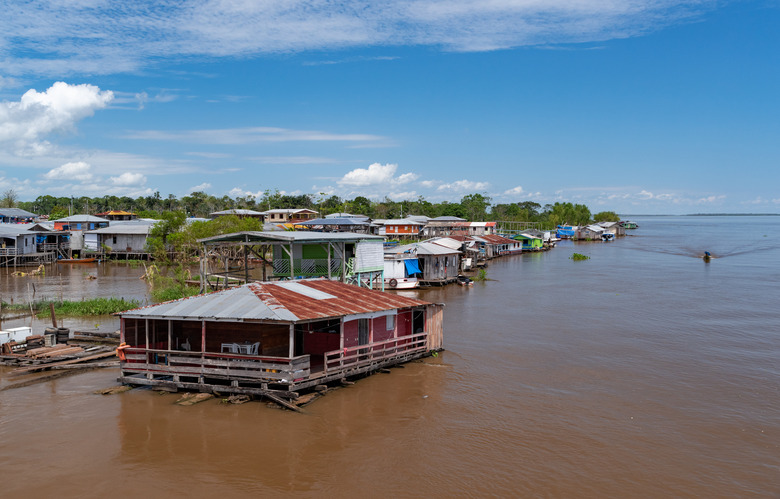Natural Disasters In The Rainforests
Tropical rainforests are important to modern humanity, due to the extreme diversity of bio-pharmaceutical resources and their contribution to the global ecology. Eighty percent of the world's biodiversity is contained within tropical rainforests. These unique biospheres exist within 28 degrees north or south of the equator, forming a lush environment in which life thrives. Rainforests are especially susceptible to extreme climate changes and inclement weather activity.
Flooding
Flooding
Unlike the Earth's temperate zones, rainforest areas consist of two seasons: rainy and dry. During rainy seasons, unbroken precipitation can last for days or weeks. This causes massive flooding of lowlands, river banks and so on, feeding the lakes and rivers that help sustain the equatorial climate.
Drought
Drought
Because of the extreme dampness and humidity of the rainforest environment, droughts are relatively uncommon in rainforest areas. However, when they occur, they are extreme. In 2005, a so-called "100-year" drought struck the Amazon, killing off many trees and releasing millions of tons of CO2 into the atmosphere.
Landslides
Landslides
One byproduct of constant precipitation is very loose, very wet soil and sediment. This can lead to instabilities in hilly or steep areas in which earth collapses and cascades in a downward motion. If they gain enough momentum, they can be very destructive to surrounding areas. Some researchers speculate that deforestation causes some of this activity, due to the removal of root systems that help bind loose earth in place.
Forest Fires
Forest Fires
Forest fires can be spontaneous or man-made. During drought conditions, extreme heat and dryness combined with a thin canopy layer and rotting, flammable mass on the forest floor can spark spontaneous fires that can burn until they are naturally exhausted or extinguished by the arrival of rain. Many man-made fires are the result of deforestation activities, that deliberately burn down large areas of forest to create arable land.
Cite This Article
MLA
Woudon, James. "Natural Disasters In The Rainforests" sciencing.com, https://www.sciencing.com/natural-disasters-rainforests-8241443/. 22 November 2019.
APA
Woudon, James. (2019, November 22). Natural Disasters In The Rainforests. sciencing.com. Retrieved from https://www.sciencing.com/natural-disasters-rainforests-8241443/
Chicago
Woudon, James. Natural Disasters In The Rainforests last modified March 24, 2022. https://www.sciencing.com/natural-disasters-rainforests-8241443/
